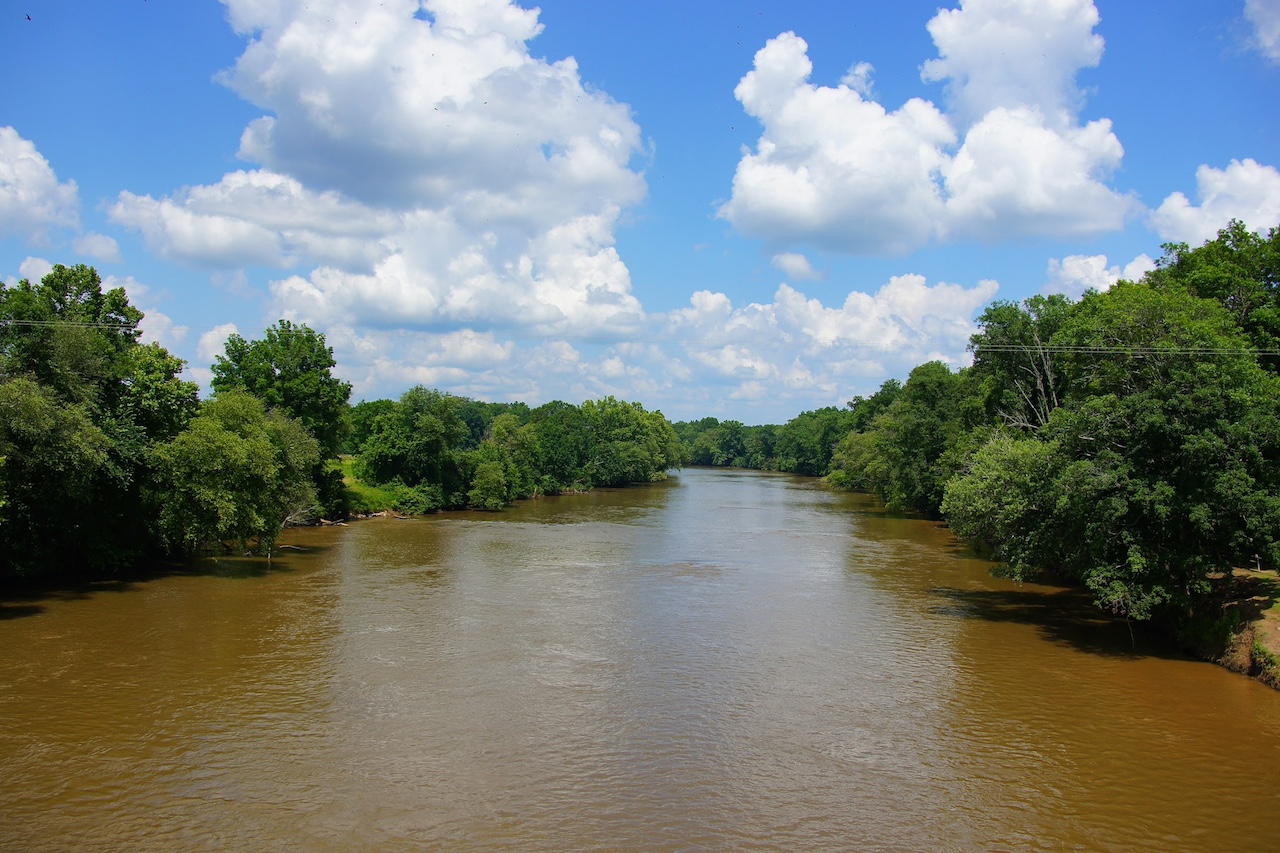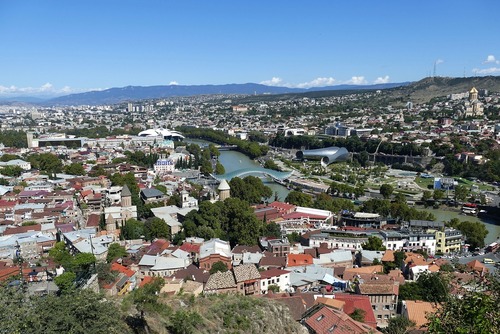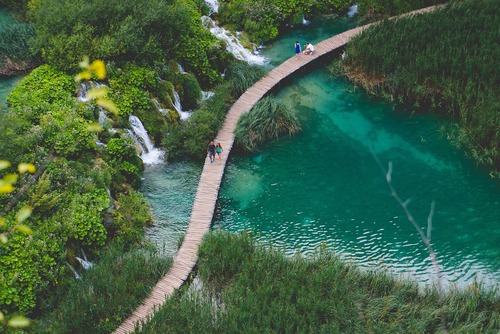Welcome to the world of eco-tourism in the US state of Georgia!
Although Gerogia is famous for cities like Atlanta, Augusta, Columbus, Macon, and Savannah, there are also lots of unique breathtaking landscapes and spectacular places to see away from the hustle and bustle of city life.
As an eco-tourist, you're not just a visitor, but a steward of the environment. Whether it's hiking through the Appalachian Trail or exploring the coastal marshlands, Georgia offers a myriad of opportunities for responsible travel.
In this article, I'll share insights and tips on how to make the most of your eco-tourism adventure in Georgia and the best destinations to visit. So, let's embark on a journey that's as enriching for us as it is beneficial for our planet.
Eco-Tourism in Georgia: Scope and Potential
Expanding the conversation on Georgia's eco-tourism, it's fascinating to delve into its rising prevalence and unique features setting it apart.
The Rise of Eco-Tourism in Georgia
In recent years, eco-tourism's growth in Georgia exhibits a promising trend. The Georgia Department of Economic Development reported in 2019 that eco-tourism visitations have seen a steady increase.
This visitor influx signifies tourists' growing inclination towards responsible travel. Eco-tourism’s rise isn't a mere chance occurrence, either - rather, it's a response to several compelling factors.
Eco-conscious travellers find Georgia's diverse landscapes, from mountain peaks to coastal wetlands, too enticing to skip on their ‘green’ itinerary. Georgia's rich biodiversity, evident through wildlife species like the southern right whale and loggerhead sea turtle, is another crucial contributor.
Moreover, Georgia’s commitment to conservation, demonstrated through its numerous national parks and protected areas, stirs the eco-tourist in us, encouraging more responsible travel.
Unique Selling Points of Georgia
Building on the eco-tourism boom in Georgia, it's important to acknowledge the distinctive offerings that carve a niche for Georgia.
One incredible location lies in Georgia's blend of natural beauty and cultural heritage, making it a haven for eco-tourists. Sites like the Okefenokee Swamp offer immersive wilderness experiences, whereas cultural hotspots like the Sonesta hotels help tourists soak in Georgia's local essence.
Additionally, Georgia’s eco-tourism promotes direct community involvement, providing them with sustainable means of income. Local guides, artisans, and service providers heavily benefit from the eco-tourism surge, truly embodying the philosophy of ‘Tourism that Cares.’
Furthermore, eco-tourism initiatives in Georgia prioritize trail maintenance, litter management, and nature preservation, ensuring that the state’s natural splendors remain unspoiled for future generations to relish and appreciate.
Truly, eco-tourism in Georgia isn’t just about travel - it’s an enriching experience fostering reverence for nature and local cultures alike.
Top Eco-Touristic Destinations in Georgia
Georgia teems with eco-touristic destinations. From national parks to community-based eco-tourism sites, there's a wealth of locations where one can embrace responsible tourism.
Discovering National Parks and Reserves
Georgia's national parks and reserves are must-visit destinations for eco-tourists. These areas protect biodiversity and offer stunning displays of nature.
For instance, there's the Chattahoochee National Forest. It's a haven for outdoor enthusiasts, with its 18 wildernesses and over 450 miles of trails. It encompasses a wide variety of terrain—mountain peaks, rivers, gorges—even waterfalls—providing diverse habitats for hundreds of wildlife species.
The Okefenokee National Wildlife Refuge is another popular destination, this is one of the oldest and well-preserved freshwater areas. This wildlife refuge hosts a unique mixture of wildlife and offers an array of outdoor activities, from canoeing to bird watching, to those who prefer their adventures wet and wild.
Truly, Georgia's natural sanctuaries offer visitors an immersive eco-touristic experience, reinforcing the role of travelers as stewards of the environment.
Exploring Community-Based Eco-Tourism
Community-based eco-tourism in Georgia adds a distinct flavor to responsible travel. Not only does it promote sustainable practices and environmental stewardship, but it also supports local economies and cultures.
One brilliant spot to discover is the Hog Hammock Community on Sapelo Island. It's a community-owned destination of the Gullah Geechee people, the descendants of enslaved Africans residing in coastal Georgia. Visitors can explore the unique cultural heritage through guided tours while contributing to the community's sustainable income.
Don’t miss the Historic Banning Mills, an adventure resort equipped with the longest zipline canopy tour, set amidst old forests. This eco-tourism hotspot not only ensures adrenaline-pumping fun but also funds land and historic restoration projects.
In Georgia, eco-tourism isn't just about venturing to new places—it's about learning to appreciate the nature and cultures that make these places extraordinary, one community at a time. Remember: Be a traveler, not a tourist. Treat every destination as if it's your own home. And if you're looking for a stay during your eco-tours, Sonesta hotels in Georgia offer comprehensive services to make your trip as comfortable as possible.
Responsible Travel in Georgia: A Guides' Perspective
Traveling responsibly enhances the benefits derived from eco-tourism but requires mindfulness and commitment. Here, we'll explore some sustainable practices to adopt, and emphasize the crucial role of local communities in promoting responsible travel.
Sustainable Practices to Follow While Traveling
Travelers can act as stewards of conservation by adopting sustainable practices during their visit to Georgia. Promoting minimal impact tourism, limiting the use of single-use items, and properly managing waste are great places to start. For instance, in Chattahoochee National Forest, camping visitors often use reusable water bottles to reduce plastic waste.
Minimizing carbon footprint is also essential, and travelers could choose public transportation or biking to explore local attractions. Over the years, the Historic Banning Mills area has seen a significant spike in tours using bicycles and electric scooters.
Lastly, using the services of local guides and tour operators who engage in responsible practices deepens your travel experience. For example, many tours in Okefenokee National Wildlife Refuge are led by guides who prioritize wildlife safety, demonstrating how to observe animals without hindering their natural behavior.
Role of Local Community in Promoting Responsible Travel
The local community holds a vital role in maintaining the delicate balance between tourism and conservation.
In Georgia, many communities have capitalized on eco-tourism to mitigate the impacts of mass tourism and forge sustainable income channels. It's seen in Hog Hammock Community's initiative to offer homestays, contributing to the local economy and allowing travelers to experience authentic cultural immersion.
Education is another crucial role the local community plays. It instills a sense of respect in the tourists for the environment and local traditions, helping them navigate the nuances of responsible travel.
Local community members in various Georgia communities conduct educational programs to acquaint travelers with local ecosystems, biodiversity, and cultural heritage.
By taking the lead in conservation initiatives, local communities set an example of responsible practices, promoting responsible travel as a social norm rather than an alternative. Their commitment to sustainability serves as a reminder of the need for travelers to pledge their accountability towards responsible tourism.
Practical Tips for The Responsible Traveler in Georgia
Navigating the artistry of Georgia as an eco-tourist involves careful planning and mindfulness. Underneath the subheadings, let's delve into actionable advice for preparing and conducting an eco-conscious visit to Georgia.
Preparing For Your Trip
Cementing sustainability into your journey starts long before you set foot in Georgia.
First off, think about how you're going to travel. Air travel, for example, although fast, contributes significantly to carbon emissions. Instead, consider sustainable transportation alternatives whenever feasible. Second, packing light reduces vehicle weight, regulating fuel consumption and minimizing emissions.
In addition, gather as much information as you can about Georgia's ecology, wildlife, traditions, and appropriate behavior around them. It’s recommended to learn about local customs, dress norms, and religious sensitivities to respect the local culture.
Eco-Conscious Behavior During Your Visit
Once you've arrived in Georgia, mindfulness is the backbone of every action you take. When immersing in Georgia's natural attractions, "leave no trace" should be your mantra. As enticing as wildlife and plant species may be, remember to admire them from a distance, avoiding any disturbance to their natural habitats.
Intricately linked to this is the principle of not feeding wild animals. Natural ecosystems have their food chains well established, and human interference can be disruptive, even when prompted by good intentions.
In terms of water and energy consumption, it's prudent to conserve as much as possible. Turn off lights and AC when you exit your room, take short showers, and avoid wasting water.
Lastly, support local artisans by purchasing handcrafted souvenirs. However, be conscious of what you buy, ensuring not to purchase products that exploit wildlife or endangered species.
Plan a Trip to Explore the Hidden Gems of Georgia
By following our tips, you'll not only enjoy your visit to Georgia but also contribute to the sustainability of its rich ecology and culture. Now go explore this beautiful state for yourself.








